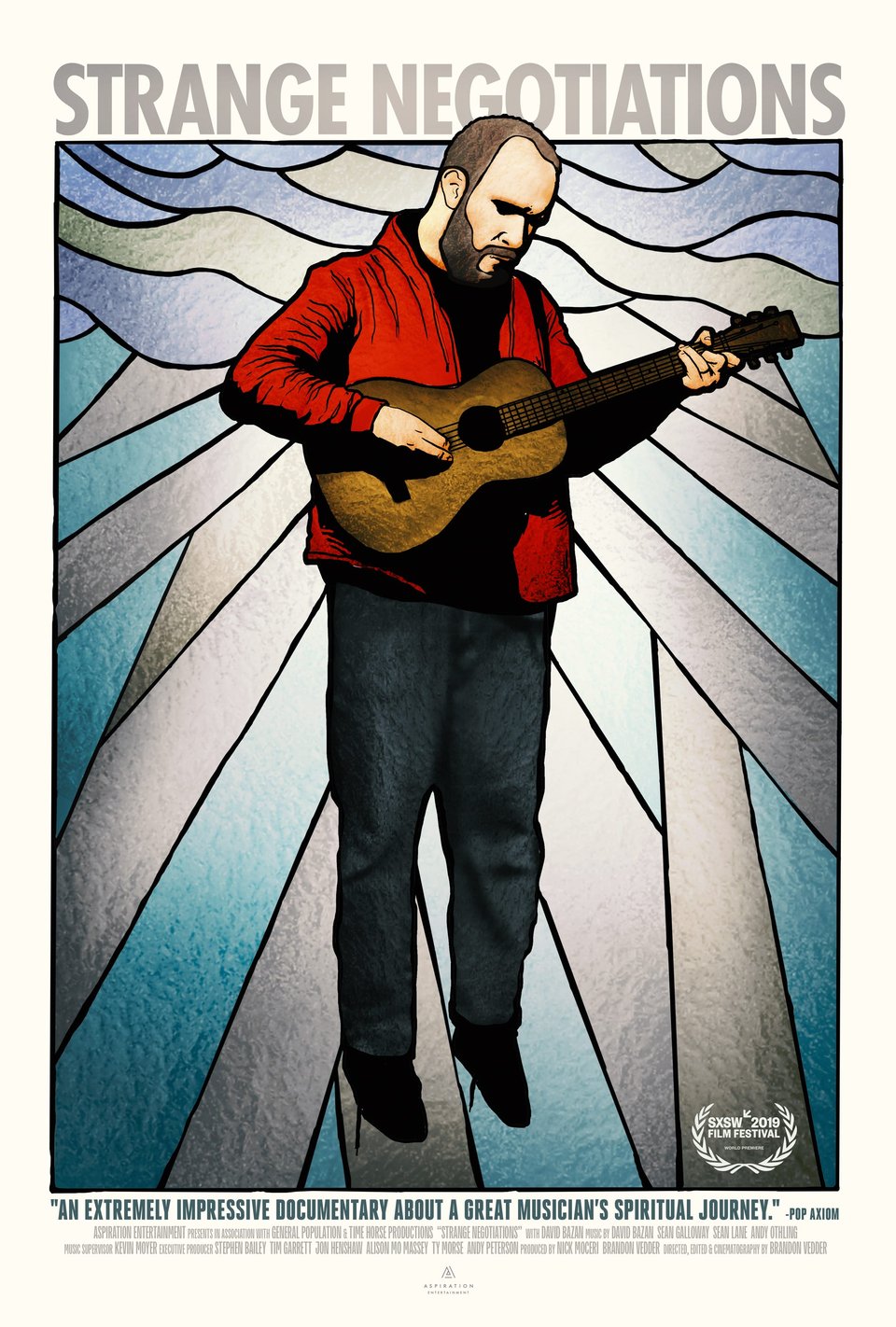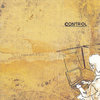#7: Balance

Hey hi how are ya? I was thinking a lot about Pedro the Lion the other day and I remembered something I had stowed away in my files that I realized I wanted to share. In a stroke of very good timing for this newsletter, the band hinted yesterday that they’re working on new music. So this newsletter is actually timely after all.
Making stuff... pic.twitter.com/eRRVDTRSTV
— Pedro The Lion (@pedrothelion) March 15, 2021
I talk a lot about the weather in regards to the way that it determines my listening habits, maybe that’s kind of dumb but I can’t help it. Anyway, we had a bit of a fool’s spring last week in Philly which I loved, but winter’s kind of back today and I think that slight, brief return is perfect for David Bazan’s music. Before I do a little bit of music review upcycling, I thought I might quickly run through five of my favorite Bazan tracks. Here they are in chronological order:
“Promise” from It’s Hard to Find a Friend (Pedro the Lion, 1998)
I know we’re probably all tired of hearing about “at the beginning of the pandemic” stories. I’m sorry. Really quick. At the beginning of the pandemic, alongside Ben Gibbard’s daily live streams, I loved watching Bazan’s sporadic Twitch transmissions. In those early days, Bazan really had a calming effect on me, his level, quiet voice helping to keep me steady during those brief online shows, something I’m still grateful for a year down the line. Anyway, I got really into It’s Hard to Find a Friend during those early days, an album that I always thought revealed a nascent uncertainty if you look at it a certain way. Maybe that’s just a projection, having read a lot about Bazan’s fraught relationship with faith. But on “Promise,” which has always been my favorite on the record, Bazan repeats these lines as if to assure himself—“If I look up and the sky's not there/ Is there any reason that I should be scared?/ But a promise is a promise, I know.” There’s something soothing about that chorus, even knowing that things would never be that simple for Bazan (or anyone). It’s Hard to Find a Friend stayed on my turntable for weeks.
“Options” from Control (Pedro the Lion, 2002)
I still think Control is Bazan’s best record—it’s his most vivid and succinct album in my opinion, although it’s almost certainly also his most cynical. A concept album about a sleazy marketing businessman, the narration in this record is sometimes difficult to stomach. On “Options,” that narrator selfishly negotiates his relationships—"I could never divorce you/ Without a good reason/ And though I may never have to/ It's good to have options.” This song has always reminded me of something on We Have the Facts and We’re Voting Yes, which for me defines a certain type of downtrodden, slow guitar rock. “Options” pulls the curtain back on Control’s disquieting narrative with an evocative drama. After listening to it, I always walk around all day thinking about the subtle stomach drop I feel when those plodding drums take a pause and Bazan sets a beautiful scene for a story that will absolutely not end well—”We were walking, holding hands/ With our bare feet in the sand/ And the seagulls overhead…”
“Curse Your Branches” from Curse Your Branches (Bazan, 2009)
Jessica Hopper has this wonderful feature called “The Passion of David Bazan,” which ran in the Chicago Reader around the time Curse Your Branches came out (though I wouldn’t read it till much later, when it was included in Hopper’s essential anthology The First Collection of Criticism by a Living Female Rock Critic). Every fall, when I inevitably pull out this record, I usually re-read it. Towards the end of the feature, Bazan says, “If you look around and pay attention and observe, there is enough right here to know how to act, to know how to live, to be at peace with one another.” He’s speaking in the context of navigating his loss of faith, a topic that looms over Curse Your Branches, but I like to think about that line in terms of something I often feel, the uncertainty of deciding what you are or who you want to be. That’s how I think about “Curse Your Branches” as well, really a song that’s very fed up with definitions and labels— “Red and orange/ Or red and yellow/ In which of these do you believe?/ If you're not sure right now, please take a moment/ Cause I'll need your signature before you leave.” “Curse Your Branches” makes me think about how it’s alright to leave some questions unanswered, that you have enough right in front of you at any given moment to keep yourself going.
“Care” from Care (Bazan, 2017)
“All of us need major healing” is one of my favorite Bazan lines. The way he sings it on “Care,” toward the end of the song and with an empathetic authority, it’s always kind of ringing in my ears. It sticks out from the rest of the song, which narratively finds two characters on the precipice of an affair, and I think it’s such a strong thesis for a lot of Bazan’s work. I always think of Care as Boxer remade with synthesizers—it’s got that same brooding weary nighttime vibe about it, that feeling of growing pains for a fully-grown adult. “Care” is my favorite on the record, which always comes out in the dead of winter when it feels like it’s night all the time.
“Quietest Friend” from Phoenix (Pedro the Lion, 2019)
The guitars are what really do it for me on this one. They’re so deep and full and cutting, it’s the kind of sound that carries through to my dreams. “Quietest Friend” feels like the streets and sidewalks I grew up on during the sweltering Florida summers, so hot and untouchable that you’d really think they’d start melting at any moment. I presume that Florida and Arizona summers have that in common. Across Phoenix, Bazan is an expert memoirist, turning the everyday experiences of his childhood into emotional, consequential lessons for his adult self. “Quietest Friend” is the sharpest of the bunch, Bazan howling over these loud guitars about his past failure to be a good friend (maybe even to himself), and how the meaning of his transgressions has rippled through the years. Here’s a story of developing empathy in miniature, about becoming a better person without erasing the regret — “Sitting here with pen and paper/ I'm listening now.”

Anyway, here’s the thing I had stowed away. The following is a review I wrote of the David Bazan documentary Strange Negotiations around the time that it came out in 2019. It was supposed to go up on another website but it never did for whatever reason, but I love the film so much and I think this is a good piece so I thought I’d share.

The day before Pedro the Lion’s first official reunion show in December 2017, the group performed a short warm-up set for the Seattle public radio station KEXP. The recording of this show is one of my favorite videos from the band, in part because their wonderfully loud performances are interspersed with brief interview answers from David Bazan, the mastermind behind the project. Bazan has very publicly and honestly articulated his personal struggles over his entire career, notably grappling alongside his fans with a loss of faith in Christianity. But these aren’t Bazan’s most meaningful answers—there are plenty of those to be found elsewhere. What’s notable in this video is Bazan’s smile, his demeanor. He seems genuinely glad to return to his band, and it shows.
Contrast Bazan’s interview with KEXP in December 2017 with the opening shot of Strange Negotiations—a grim, rainy stretch of road is visible out of a front windshield, Bazan’s wet eyes are reflected by the rear-view mirror. On the surface, Brandon Vedder’s film tells the tale of Bazan’s journey back to Pedro the Lion, focusing primarily on the years that Bazan spent traversing the country alone, playing house shows as a solo act. But more importantly, the documentary skillfully captures an image of a performer who is trying to understand his place in the world in the wake of a devastating loss of faith. Like Bazan himself, Strange Negotiations is vulnerable, honest, and complex.
Most of Strange Negotiations sees Bazan on the road—performing to small, warm houses of people sat cross-legged on the ground, selling records out of the back of his van, checking into lonely hotels off endless highways. There’s some history interjected throughout, some old footage of Bazan performing with Pedro the Lion during their first run in the early 2000s. But the film is more than a narrative story about Bazan’s musical life. The emotional core of the film comes in these lonely stretches of road, over which Bazan talks about everything he’s missing back home with his wife and two children, and also about leaving the religion he grew up with.
Both of these main topics are equally heart-shattering on the screen. At one point, Bazan recounts the story of his breaking point with the church, declining to take communion and instead heading to a bar. “It was devastating,” he says, “it was gradual but there were these moments where there were big shifts.” The story is punctuated with a performance of Pedro the Lion’s “Rejoice,” which opens with the lines “wouldn't it be so wonderful if everything were meaningless/ but everything is so meaningful/ and most everything turns to shit.” The story in conjunction with the song sheds light on the brutality and loneliness of Bazan’s loss.
Later on, while driving, Bazan talks about his anxiety over the amount of time that his job touring the country takes away from his family, lamenting the milestones that he’s had to miss as his children grow up. In the most powerful moment of the film, Bazan speaks to the strain that his time on the road has put on his relationship with his wife—“my wife and I are growing old, and we’re only growing old together halfway.” The heartbreak that Bazan shows here on screen makes this one of the most genuinely affecting scenes I can think of in a rock documentary.
When Bazan comes back to Pedro the Lion, it’s described as a very rational decision. Bazan wanted to make loud music again. He wanted to travel the country with friends instead of by himself. He wanted to be home more. But after footage from the band’s first reunion performance is shown, Bazan is seen at a birthday party for one of his kids, and he says something that brings this rational decision a little closer to spirituality—“What if the divine is just balance?”
Before this, though, the film shows some extra footage of Pedro the Lion’s December 2017 KEXP performance, that one I loved so much, and now I realize why Bazan was so jovial. Before the band starts playing, we see Bazan’s son gesturing joyously at him through the window of the studio. Bazan has been smiling at him the whole time. While he may have lost his balance along the way, Strange Negotiations wonderfully and vulnerably depicts Bazan finding his footing through his family and once more with Pedro the Lion.

It’s interesting to read this back after so long. After a full year of live music being shut down, it’s kind of odd to think about the transient, constantly travelling, incredibly intimate style of Bazan’s touring life. Bazan’s personal life has also changed quite a bit. But I think about the film often and the way it depicts the tricky business of balancing the different forces that keep you going.
Strange Negotiations says a lot about sacrifice and how much you can stand to give to any one thing. But there’s also something gratifying in the way these difficult decisions can lead to something (kind of) new and unexpected, like a new phase of a chapter you thought was long dead. I am, as always, struck by the power of Bazan’s vulnerability. It gives a special weight to the way the film portrays him as a person constantly caught between different versions of himself—religious and not, touring musician and stay-at-home dad, warm house show host and weary traveller.
I think about how the person I actually am is determined by the way I place myself across several unique axes. How we all inevitably end up tinkering (or being forced to move) our positions along these lines, all our lives. There’s something equally terrifying and exhilarating about that—that we can (or have to) perpetually negotiate with ourselves to find that balance that Bazan is talking about.
You can rent Strange Negotiations from a bunch of different places, and I really recommend that you do.

Thanks for reading I Keep a Diary. Last year, Bazan released a second LP with his other band Lo Tom, an incredibly solid rock record. So I’ll leave you with one more Bazan song, arguably the biggest banger to be found in today’s newsletter:
My name is Jordy Walsh, and I’m a writer based in Philadelphia. I write about music for The Alternative and Slant Magazine. I Keep a Diary is a newsletter about music, books, writing, and probably a lot of vague emotions. You can follow me on Twitter for pictures of my dog and also the varous cookies and cakes I’ve been baking lately. Thanks for joining me.




